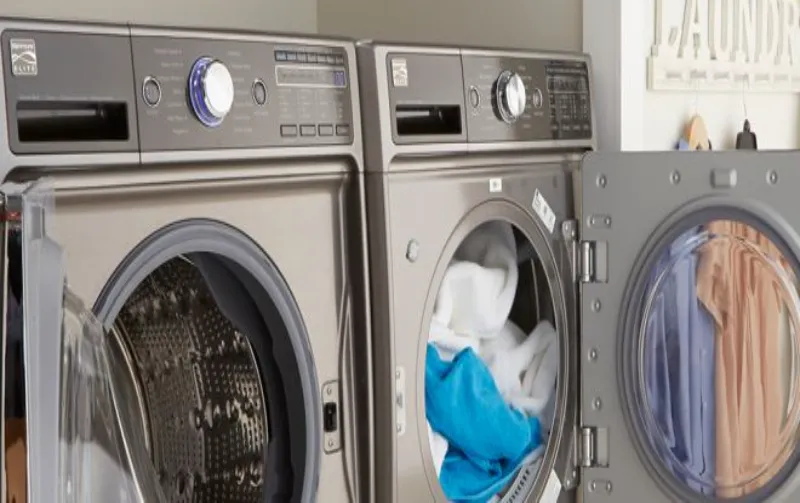Yes, cold weather can affect dishwashers, potentially leading to underperformance or damage. Extreme cold may cause pipes to freeze, disrupting water flow to the appliance.
Dishwashers, while often overlooked in conversations about weatherproofing homes, are not immune to the whims of winter.
These handy appliances depend on a steady flow of water to operate correctly.
During cold snaps, water lines can freeze, preventing the dishwasher from filling.
Consequently, this disrupts the wash cycle, leading to frustration and the need for potential repairs.
Moreover, low temperatures in unheated areas where a dishwasher is installed, such as a garage, can cause residual water inside the appliance to freeze, expanding and possibly damaging internal components.
Homeowners should ensure their dishwashing units and connecting pipes are adequately insulated, particularly in regions susceptible to bitter cold temperatures, to maintain optimal functionality throughout chilly months.

The Impact Of Cold Weather On Dishwasher Functionality
Cold weather may significantly influence the efficiency and reliability of dishwasher operations.
As temperatures drop, the water entering the dishwasher is colder, which can prolong the duration of the wash cycle.
Colder water takes longer to heat up, resulting in extended heating times and increased energy consumption.
Moreover, frigid conditions can cause the water lines leading to the dishwasher to freeze, potentially leading to impaired water flow or even damage to the pipes.
The dishwasher’s internal components, like the pump and seals, could also suffer in cold weather.
These elements are designed to operate within a specific temperature range, and when exposed to colder environments, they might not function optimally, causing reduced cleaning efficacy or mechanical failures.
Proper insulation and climate control within the home are vital to ensure the dishwasher operates correctly throughout the winter months.
Tips For Optimizing Dishwasher Performance In Cold Weather
Optimizing dishwasher performance during cold weather is crucial to ensure dishes come out clean and the machine operates efficiently.
A vital measure is to adjust the water temperature settings on your heater.
Ensuring the water entering the dishwasher is at the appropriate temperature can make a significant difference.
It is recommended to set the water heater to at least 120°F (49°C) to aid in better cleaning results and to prevent the appliance from straining.
To combat the effects of cold weather, consider insulating your dishwasher.
This can help maintain the internal temperature, preventing the cold air from affecting the unit’s performance.
Insulation jackets or blankets designed for dishwashers are available and can be a worthy investment for those living in colder climates.
By taking these steps, you can ensure your dishes are sparkling even when temperatures drop.
Maintenance Practices To Counter Cold Weather Effects On Dishwasher
Maintenance practices are crucial to ensure your dishwasher remains operational during cold weather.
It’s important to take preventative measures to avoid damage caused by freezing temperatures.
First, ensure that the appliance is installed in a space with consistent heating to prevent the components from freezing.
Next, check the seals and door gaskets regularly for wear and tear, replacing them if necessary to prevent leaks which can lead to water damage and ice formation.
It is advisable to run a wash cycle with hot water right before a cold snap to keep the internal parts warm and to prevent any residual water from freezing within the pipes.
For those who live in extremely cold climates or have vacation homes, winterizing your dishwasher is essential.
This can involve draining the water from the dishwasher and disconnecting it from the water supply.
Using non-toxic antifreeze specifically designed for appliances can help protect the internal components from freezing.
Frequently Asked Questions On Can Cold Weather Affect Dishwasher
Does Cold Weather Impact Dishwasher Performance?
Cold temperatures can cause problems in dishwasher operation, potentially hindering water flow and affecting cleaning efficiency.
Can Freezing Temperatures Damage Dishwashers?
Yes, freezing temperatures can cause pipes to freeze and burst, leading to leakage and potentially damaging the dishwasher’s internal components.
How To Protect Dishwashers In Winter?
Insulate any exposed pipes, maintain a warm enough ambient temperature, and use antifreeze dishwasher-safe additives if necessary.
What Are Common Cold-related Dishwasher Problems?
Issues include reduced efficacy of detergent, longer cycle times, and potential freezing of water lines and drain hoses.
Conclusion
As winter arrives, it’s clear that cold weather can indeed impact your dishwasher’s performance.
Ensuring proper insulation and maintenance will help avoid unwelcome surprises.
Remember, your kitchen appliances need seasonal care just like your home.
By taking simple precautions, you can keep your dishwasher running smoothly, irrespective of the frosty temperatures outside.
Don’t let the cold put a freeze on your dish-cleaning efficiency.

